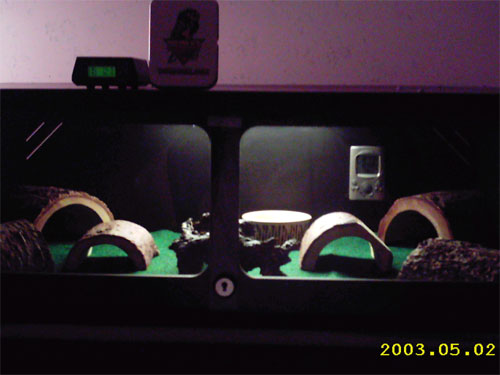I am looking at getting a 4' x 2' cage made from CPVC. I like either the animal plastics or Reptile Basics. My main question is -
Is flexwatt enough to heat whole cage?
i would like 90 hot and 80 cool side i keep my house at 70 - 75 degrees.
Would i need two thermostats one for hot side and one for cool or can i just heat the one side. Or is it enough to just heat one side?
Also has anyone bought the reptile basics cages? I know AP is very popular but haven't heard anything about RBI. Unfortunately AP has a 2-4 week wait currently and haven't heard back from RBI yet.
The other thing i am looking at would be pro-products radiant heat panels. They seem the best but are expensive.
Thanks for any insight...








 Reply With Quote
Reply With Quote
